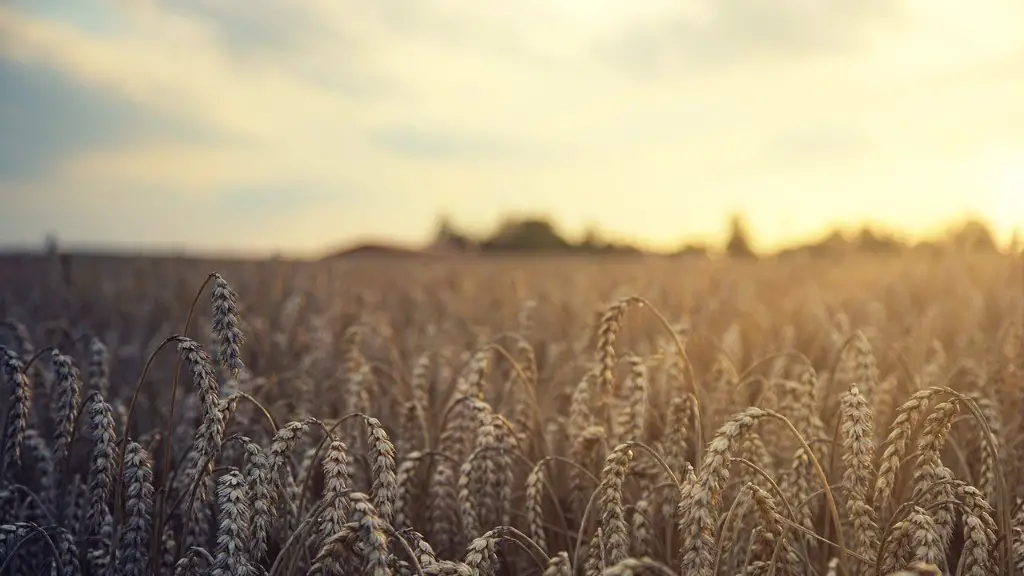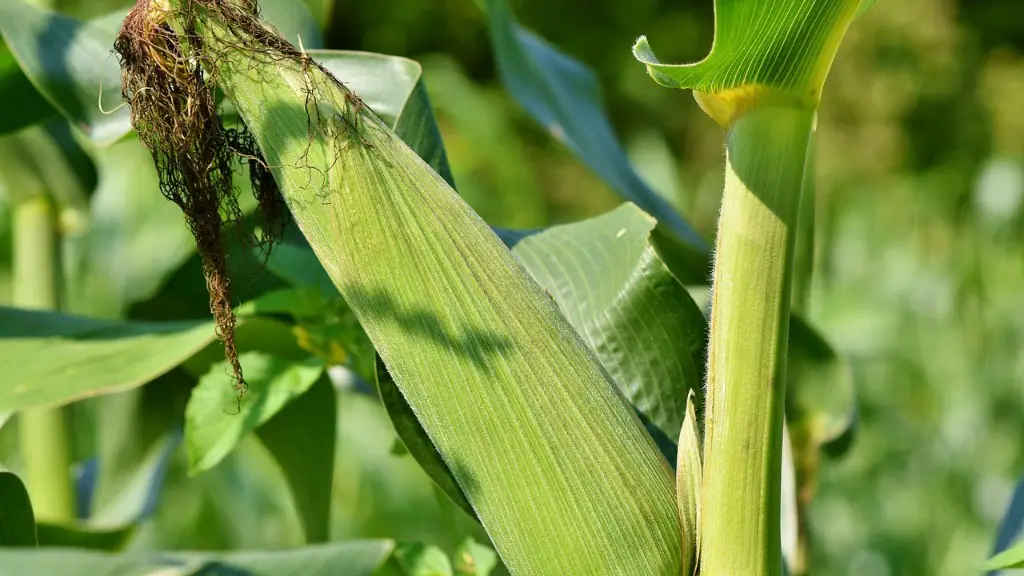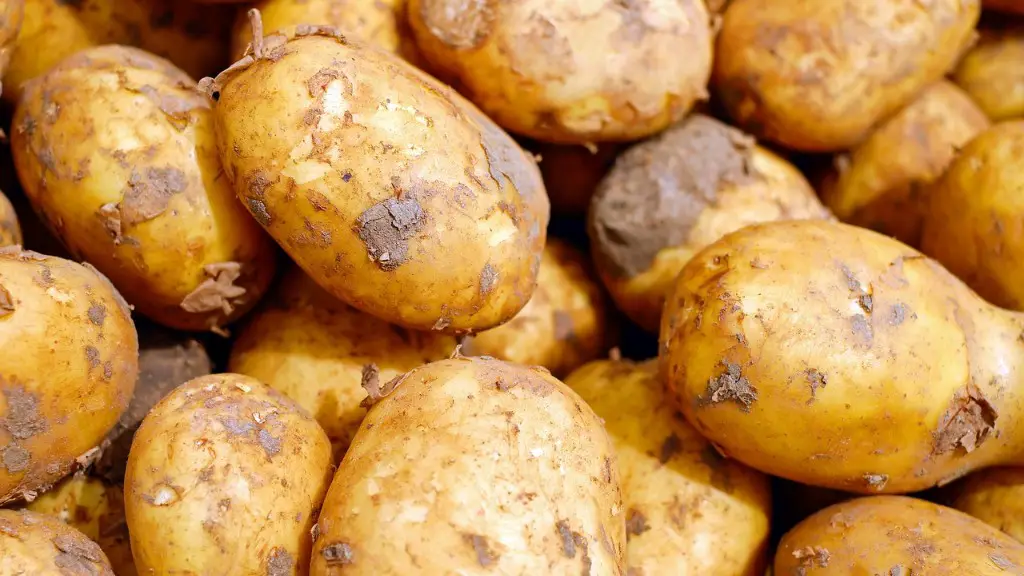There are many reasons why agriculture is good. It is an essential part of the food chain, providing us with the fruits, vegetables, and grains that we need to survive. It also helps to conserve resources, since it is more efficient to produce food using agricultural methods than to gather it from the wild. Agriculture also supports local economies by providing jobs and income. Finally, agriculture is good for the environment, since it helps to preserve open space and reduces soil erosion.
From a food security standpoint, agriculture is good because it helps to ensure that a population has enough to eat. Agriculture also provides a livelihood for farmers and rural communities. Beyond its role in food security, agriculture is also a key driver of economic growth and development. The sector employs a large share of the global workforce and generates significant income and export earnings. Agriculture also plays an important role in environmental conservation.
Why is agriculture good for the Earth?
Pasture and cropland play an important role in the health of the planet and its inhabitants. When managed sustainably, they can help preserve and restore critical habitats, protect watersheds, and improve soil health and water quality. By working together, we can ensure that these vital resources are used in ways that benefit us all.
Agriculture has been a key driver of human civilization. It has allowed for the growth of cities and the development of civilizations. More abundant food supplies has allowed for denser populations and the growth of towns and cities. Agriculture has produced enough food that people have been able to pursue interests other than worrying about where their next meal will come from. This has led to the development of art, science, and other aspects of human civilization.
What are pros and cons of agriculture
Though there are some cons to agriculture, the pros heavily outweigh them. Agriculture allowed for the domestication of wheat, corn, and rice, which were essential in the development of civilization. Specialization also allowed humans to become experts in their field, whether it be as an artist, leader, or scribe. The abundance of food that came with agriculture allowed humans to thrive and populations to grow. Overall, agriculture was a huge step in human development.
Agriculture is important for a variety of reasons. It is the main source of raw materials for many industries, it is important to international trade, it plays a big role in a nation’s revenue, it provides employment, it is crucial to a country’s development, it can help heal the environment, and it goes hand-in-hand with war.
What are 3 importance of agriculture?
Agriculture plays a critical role in the entire life of a given economy. It is the backbone of the economic system of a given country. In addition to providing food and raw material, agriculture also provides employment opportunities to a very large percentage of the population.
Farming is not just good for your health, it is also challenging and stimulating work that can provide a source of income in rural areas. Farm work can help develop younger generations and farming can help the environment thrive.
Why is it better to live in agricultural society?
People in an agricultural society generally lead a more settled lifestyle than those in nomadic hunter-gatherer or semi-nomadic pastoral societies because they live permanently near the land that is farmed. This allows them to establish permanent settlements and build complex social structures. Agriculture also provides a more reliable source of food, which can support a larger population.
There are a few traditional farming methods still in use by farmers today. These methods provide important cultural and ecological services to human beings, such as protecting natural resources, maintaining biodiversity, and enhancing food security. The traditional method has helped in protecting natural resources, biodiversity maintenance, and enhanced food security.
What are the positive effects of farmland
There are many benefits to urban farming, including lower greenhouse gas emissions, minimal transportation requirements, and reduced energy use for food production. As the benefits are becoming more and more acknowledged, the trend of urban farming is starting to become quite popular.
Urban farming can help to reduce our carbon footprint as it requires less energy to produce food than traditional farming methods. It also eliminates the need for long-distance transportation of food, which further reduces emissions. Moreover, urban farms can use renewable energy sources such as solar and wind power, which further reduces their environmental impact.
In addition to being more environmentally friendly, urban farming is also more efficient in terms of land and water usage. Because of the high density of urban populations, there is less land available for traditional farming. Urban farms can make use of vertical space, rooftops, and vacant lots to produce food. They can also use hydroponic and aquaponic systems to minimize water usage.
Urban farming also has the potential to create jobs and boost the local economy. Individuals and businesses who are interested in starting an urban farm can find information and resources from organizations such as the Urban Farming Institute.
With all of the benefits that urban farming offers, it is no wonder that the trend is becoming
There are both advantages and disadvantages to setting up your own business. Before making a decision, it is important to carefully consider all of the potential implications. On the plus side, you will have more control over your work and be able to set your own hours. On the downside, you will have to deal with all of the financial and legal responsibilities of running a business. Ultimately, the decision comes down to what is best for you and your situation.
What is the most important agriculture?
Cow milk is the top agricultural product in 37 countries, while wheat is the top agricultural product in 14 countries. Corn is the most produced crop globally with 11 billion tons, followed by wheat with 7609 million tons and rice with 7567 million tons. These are the key production stats for these three agricultural products.
There are many ways to increase profitable farm income while promoting environmental stewardship and enhancing quality of life for farm families and communities. One way to do this is to increase production for human food and fiber needs. This can be done by increasing the yield of crops, improving the quality of livestock, and/or by diversifying the products produced on the farm. Other ways to increase farm income include value-added products, direct marketing, and agritourism. By promoting these activities, farmers can increase their income while also providing valuable goods and services to their communities.
Farm families receive numerous social benefits, including a sense of accomplishment and fulfilment. They see the effects of their work on the people who spend time on the farm, and they make a difference in the lives of individuals. They also help typically excluded people to become more included.
The main social benefits to those who use social farming services are recognised as: farm environment builds social skills as participants come in contact with others similar to themselves, the farm family and others who visit the farm; the acceptance of participants by ‘normal’ people is valued by participants as it raises self-esteem; the opportunity to develop new skills and experience a different way of life is also highly valued.
Why is agriculture important to our community?
Community agriculture can help foster environmental connectedness, political consciousness, and activism among youth and adults. Additionally, it can decrease stormwater runoff and air pollution, and increase biodiversity and species habitat. By engaging in community agriculture, individuals can help make a positive impact on the environment and the health of their community.
The government should support and invest in technologies that make farming easier and faster, give the highest yield, and ensure that a large area of land can be cultivated. This will reduce the cost of food items in the market and help farmers to increase their production.
Warp Up
Agriculture is our primary source of food, which is necessary for survival. It is also a significant contributor to the economy, providing jobs for many people. Agriculture can also have positive environmental impacts, such as increasing biodiversity and sequestering carbon.
There are many reasons why agriculture is good. Agriculture provides us with food, fibre and many other products. It also supports a large number of jobs and is an important part of the economy. Agriculture also helps to keep the landscape and environment healthy.





